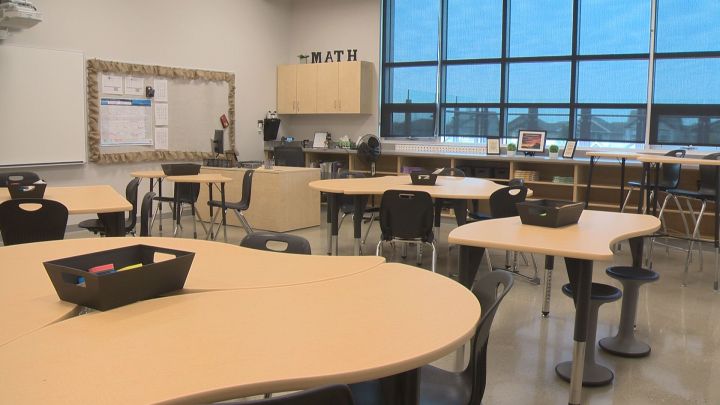Set politics aside, and tailor the future direction of education based on the needs of students — that’s the running theme coming from re-imagine education.

The committee released 12 recommendations based on the results of an education survey conducted earlier this year. Over 6,000 people from across Saskatchewan took part from all walks of life, including students.
“The people in Saskatchewan are ready for a change. The needs of our next generations are not yet being met, and we have to do some wholesale rethinking of how our education system is structured,” said Monica Krueger, a re-imagine education committee member.
The recommendations fall into four main categories: the learning environment, decision making, legislation/policy and funding.
Calls for classrooms include proper resourcing for an increasingly diverse range of student body needs, proper support from human resources (educational assistants, Indigenous elders, speech-language pathologists, counsellors, librarians, etc.) and moving evaluation beyond test scores.
Survey respondents want autonomy for local decision-makers so communities can decide what’s best for their schools. The committee also recommends forming a provincial education council, free of politics, to help ensure education policy is aligned with best practices.

Get daily National news
On the policy front, the committee calls for continually updating the curriculum with input from parents, students and the community, Ministry of Education provided and teacher-driven professional development, and school division policy driven by community input.
- ‘Alarming trend’ of more international students claiming asylum: minister
- TD Bank moves to seize home of Russian-Canadian jailed for smuggling tech to Kremlin
- Why B.C. election could serve as a ‘trial run’ for next federal campaign
- Justin Trudeau headed to UN Summit of the Future amid international instability
Finally, the committee calls for a comprehensive study to determine the “real costs” of a 21st-century education system and a long-term funding mechanism.
Education Minister Gordon Wyant said he is pleased to see some items in the recommendations line up with ministry goals, like proper resourcing.
As for acting further on recommendations, Wyant said he will need to read the report in full before commenting further.
The report did find that 54.6 per cent of respondents lack confidence in the education system. Wyant said he wants to get more context around that number. His impression is confidence is higher than that.
“When we see numbers like that we want to see what the foundation of those numbers really is,” he said.
In Krueger’s view, the current system worked fine, but will need further community discussions to figure out the work to update education so it works for all students.
“It will cost money, for sure it will. Any kind of change does. It’s an investment for the future, it’s an investment for our children and our grandchildren,” she said.
“We need to work in partnership with the government to say what’s our next step and how do we do this collaboratively. I think it’s going to take time, I think it’s going to take work. People are going to have to roll up their sleeves and we’re going to have to sit at a table and have many conversations that may not always be easy, but change is not easy.”








Comments